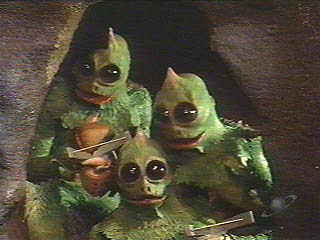Say if there was another mass extinction like what happened with the dinosaurs...and the climate of the earth and everything stayed the same, and the same survivors of the dinosaur extinction survived the human extinction...if millions of years passed would there be humans again? or would there be some other different dominant species...
any thoughts?
Wow...
Nice! Very good topic actually!
This is
slightly off topic but here goes:
Well if there was a world war and if it became a nuclear war or post apocolyptic world well then all us roach coaches and roach Kings would become the new world leaders!
We would have an awesome time!
Yeah!
I can see it now!
"King" Stinky Stinky!
What a great world that would be!

Naah but on a more serious note... apparently there used to be very basic living organisms on the Planet Mars because it was just right to sustain life, and because of this at one point Scientists say that Mars's temperature and other things were very simliar to Earth...
Now please remember that this is not concrete proof but only speculation and they (Scientists) say it
might have been possible to have life on Mars at one point in the time of our Solar system.
And also
our own planet Earth at one point (I
think it is the Archean Period) of X billion years ago or however long ago it was can't remember now but it was
not able to support life at one point in time because the sun was either too hot or too cold but I can't remember all the details.
But i do remeber reading that earth could not sustain life due to either too much heat or it was too cold but I have forgotten the details now.
I think the sun was only 75% as bright as it is today in the Archean Period so by that logic it was most probably smaller than it is today and the Earth was a lot cooler or just colder? Hmm but I am not too sure and I can't remember...
Ahhhh! I found some great info!!

I was right!
Taken from wikipedia:
Sun - Wikipedia, the free encyclopedia
Theoretical models of the Sun's development suggest that 3.8 to 2.5 billion years ago, during the
Archean period, the Sun was only about 75% as bright as it is today. Such a weak star would not have been able to sustain liquid water on the Earth's surface, and thus life should not have been able to develop. However, the geological record demonstrates that the Earth has remained at a fairly constant temperature throughout its history, and that the young Earth was somewhat warmer than it is today. The consensus among scientists is that the young Earth's atmosphere contained much larger quantities of
greenhouse gases (such as
carbon dioxide,
methane and/or
ammonia) than are present today, which trapped enough heat to compensate for the smaller amount of
solar energy reaching the planet.
I hope this helps clear up your thoughts about this stuff Painkillaz dude.
Keep well and you have a hilarious user name and good thoughts about Geological Eons!

Regards
Stinky!





